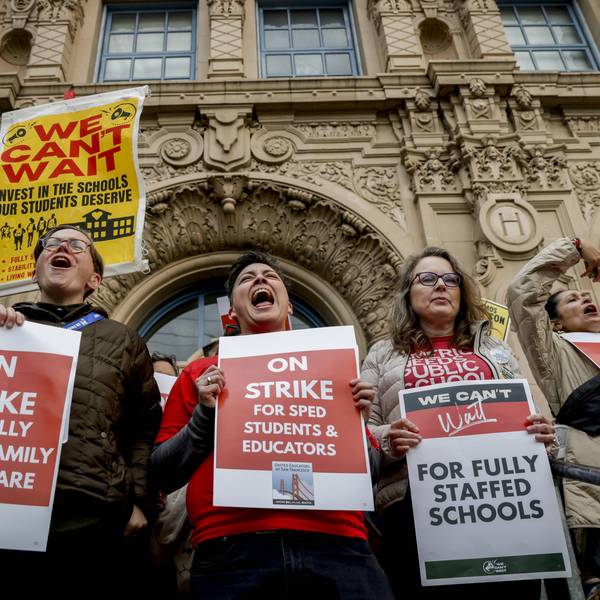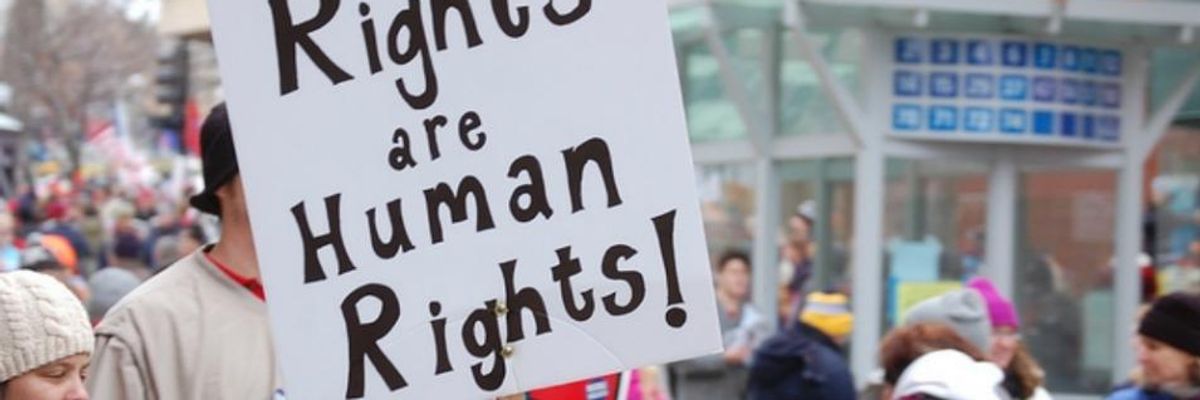We're in the midst of a brushfire outbreak of labor militancy not seen in decades.
First came a statewide teachers' strike in West Virginia. When the teachers union leadership negotiated a weak compromise (which was tabled by the GOP-held state Senate anyway), the rank-and-file rebelled and started a wildcat (that is, not approved by leadership) strike that is still going. The strike has forced the closure of public schools in the state's 55 counties, leaving more than 275,000 students without classes to attend.
Next, Oklahoma teachers, very clearly inspired by their West Virginia comrades, announced their own statewide strike on Monday.
We may be at the beginning of a very important national labor push. It's time we all paid attention.
So what is fueling the strikes? In West Virginia, the major complaint is the crumbling state employee health-care system, as Michael Mochaidean, one of the teacher organizers in the state, explains in this episode of the Chapo Trap House podcast. Recent changes in the health-care plan have shifted more and more costs onto teachers, more than erasing recent raises. Daniel Summers, a 35-year-old teacher with small children, says his insurance premium has increased by $300 per month. He was already barely treading water with his wife working and him working a second job, and this was simply too much to take.
Read the full column at The Week.




